Science worksheets activities for Ages 6-8
17 filtered results
-
From - To
Discover engaging science worksheets and activities perfect for children ages 6-8! Our thoughtfully designed resources help young learners explore essential concepts in a fun and interactive way. From captivating experiments to exciting quizzes, each activity encourages curiosity and critical thinking. Kids can investigate the wonders of nature, delve into basic physics, and explore Earth sciences, fostering a love for learning. These worksheets not only enhance knowledge and comprehension but also promote skill development through hands-on learning. Ideal for home or classroom use, our science activities make education enjoyable and dynamic. Inspire your child’s scientific journey today with our tailored worksheets!


Animals and Plants: Assessment 2 Worksheet


Animals and Plants: Assessment 1 Worksheet
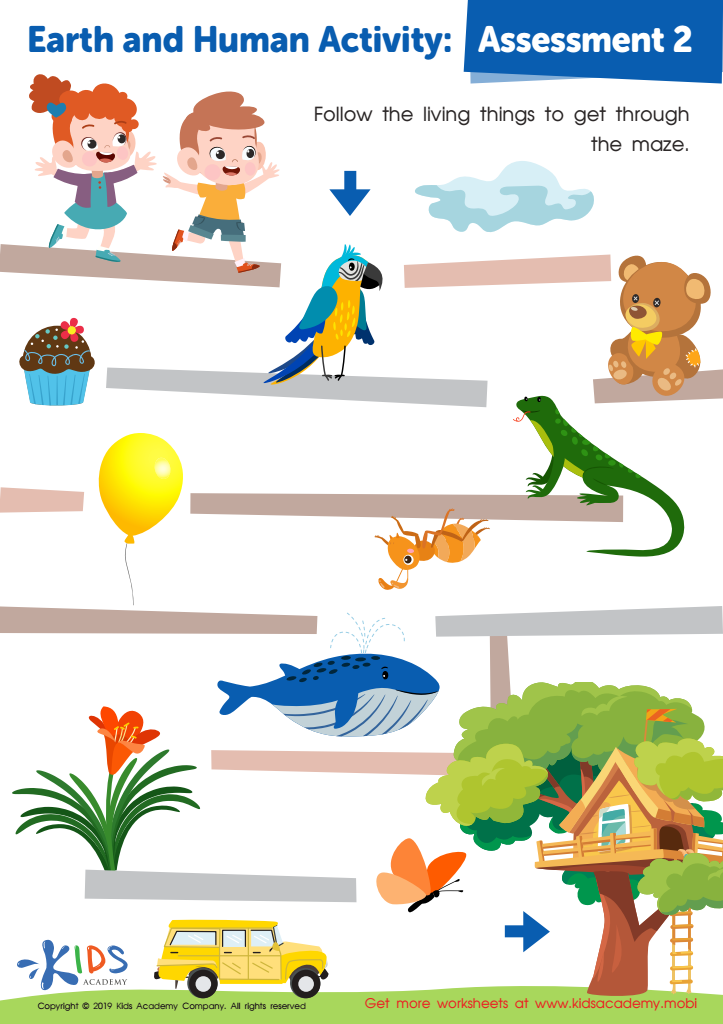

Earth and Human Activity: Assessment 2 Worksheet
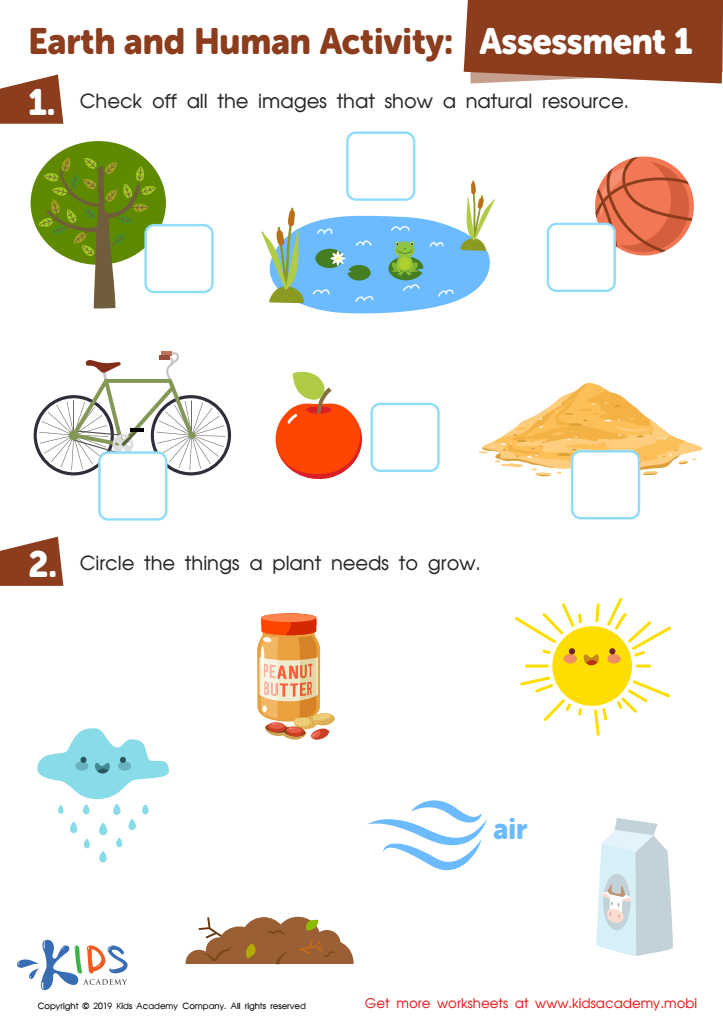

Earth and Human Activity: Assessment 1 Worksheet
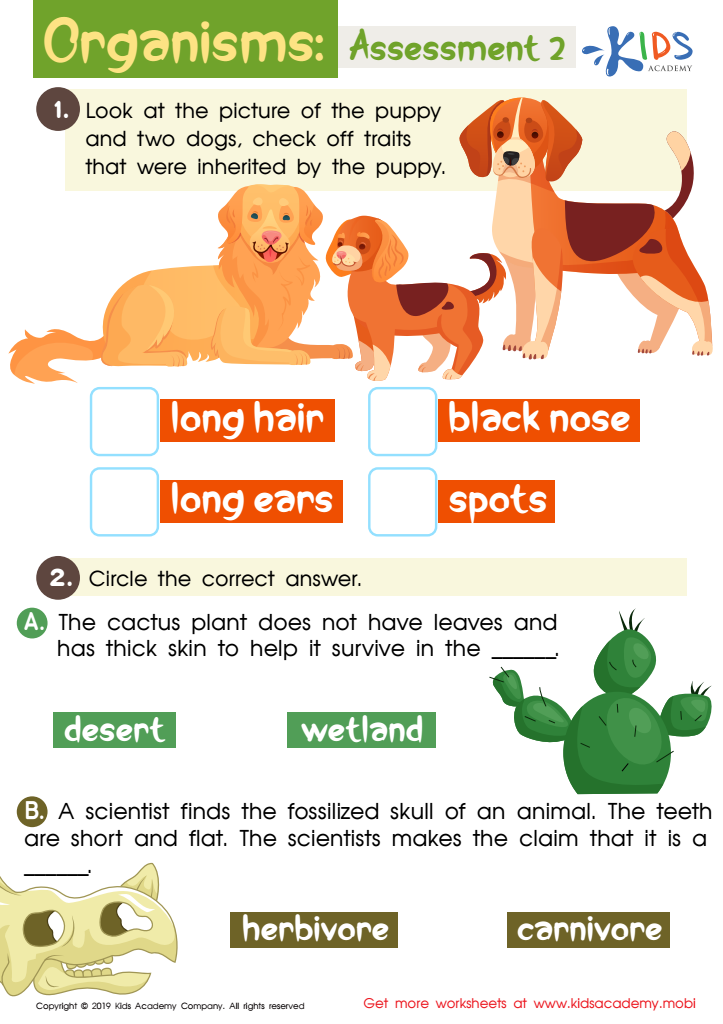

Organisms: Assessment 2 Worksheet
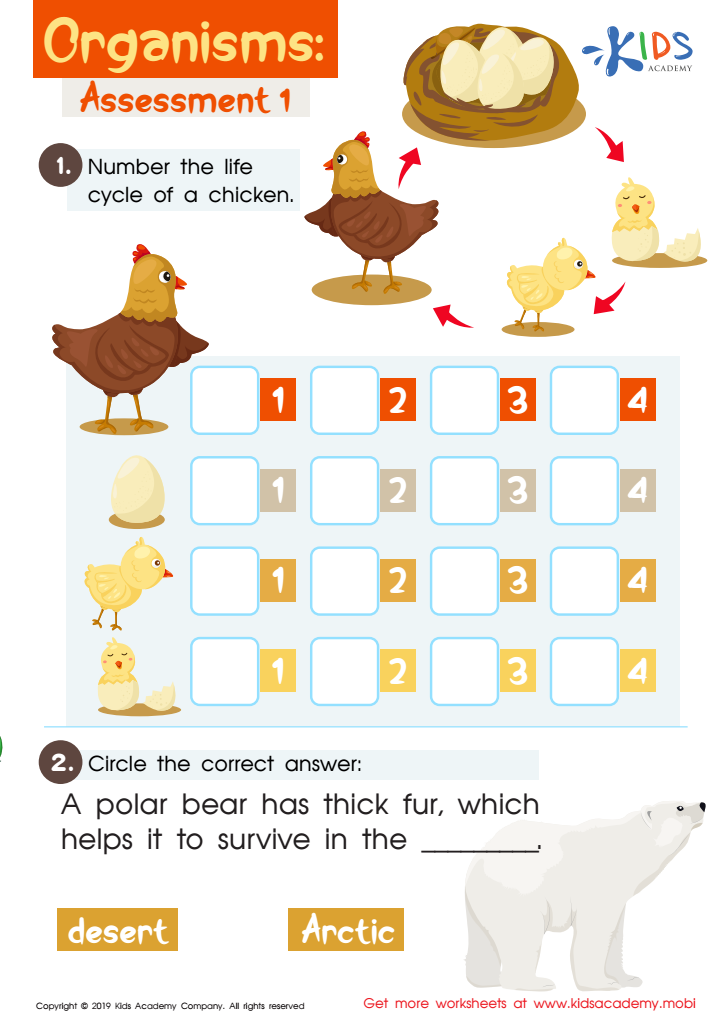

Organisms: Assessment 1 Worksheet


Ecosystems: Assessment 2 Worksheet


Ecosystems: Assessment 1 Worksheet


Space: Assessment 2 Worksheet


Space: Assessment 1 Worksheet
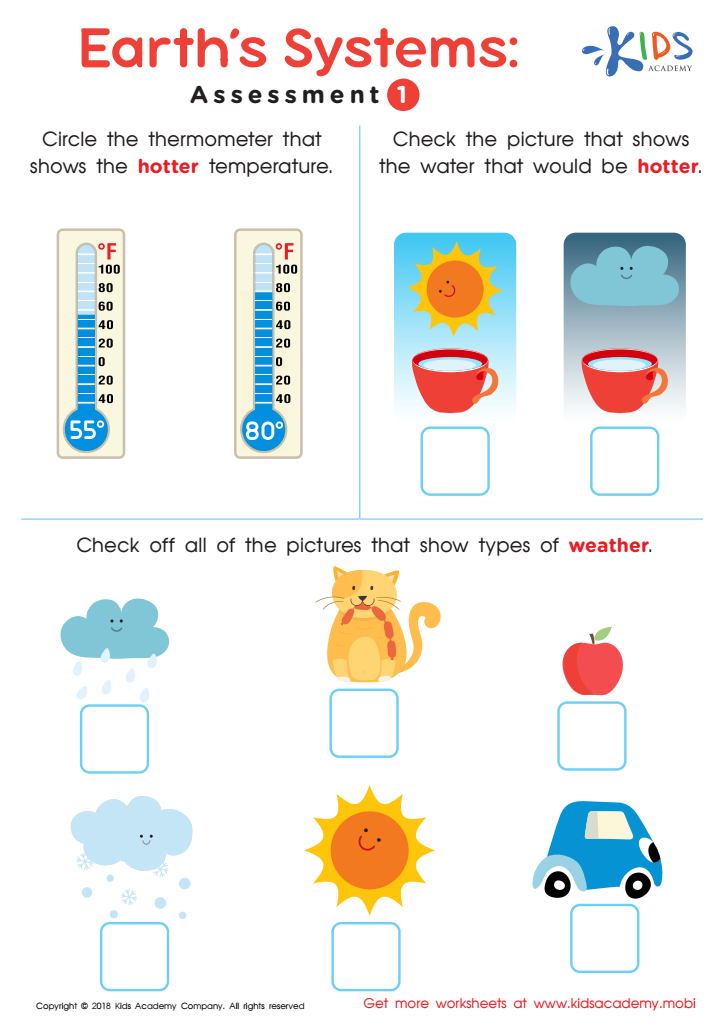

Earth's Systems: Assessment 1


Light and Sound: Assessment 2 Worksheet
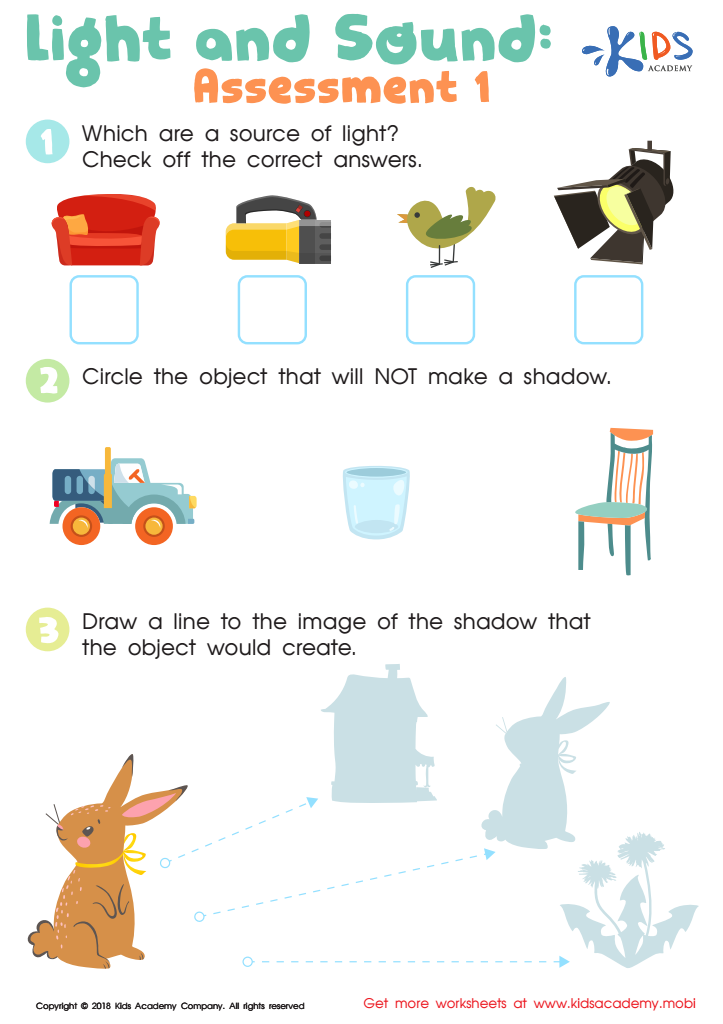

Light and Sound: Assessment 1 Worksheet
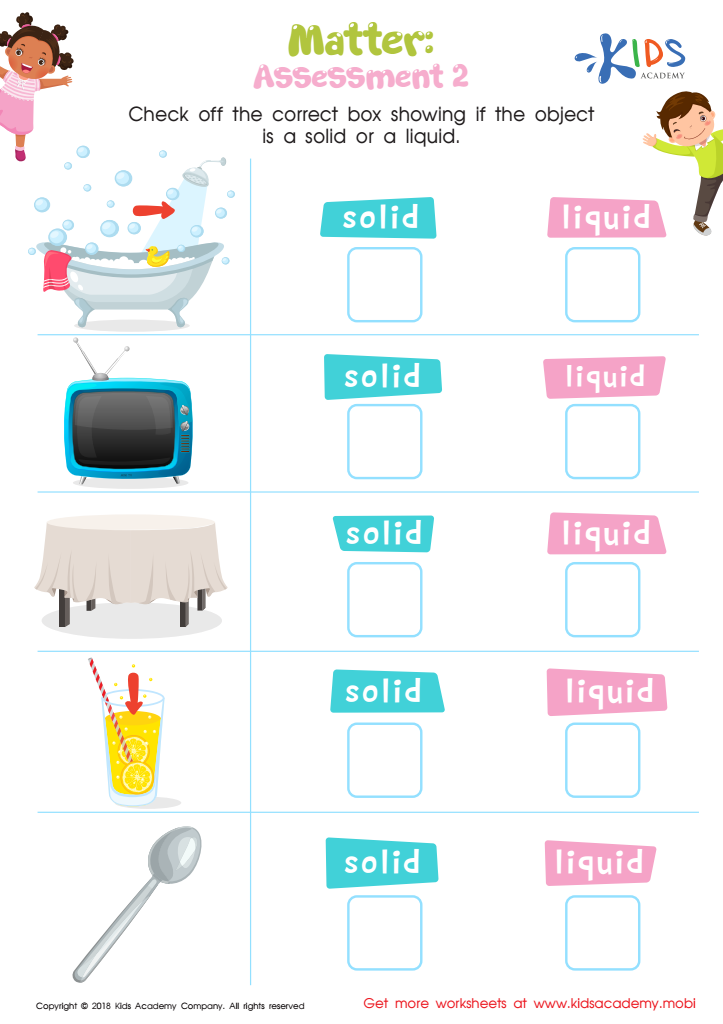

Matter: Assessment 2 Worksheet


Matter: Assessment 1 Worksheet
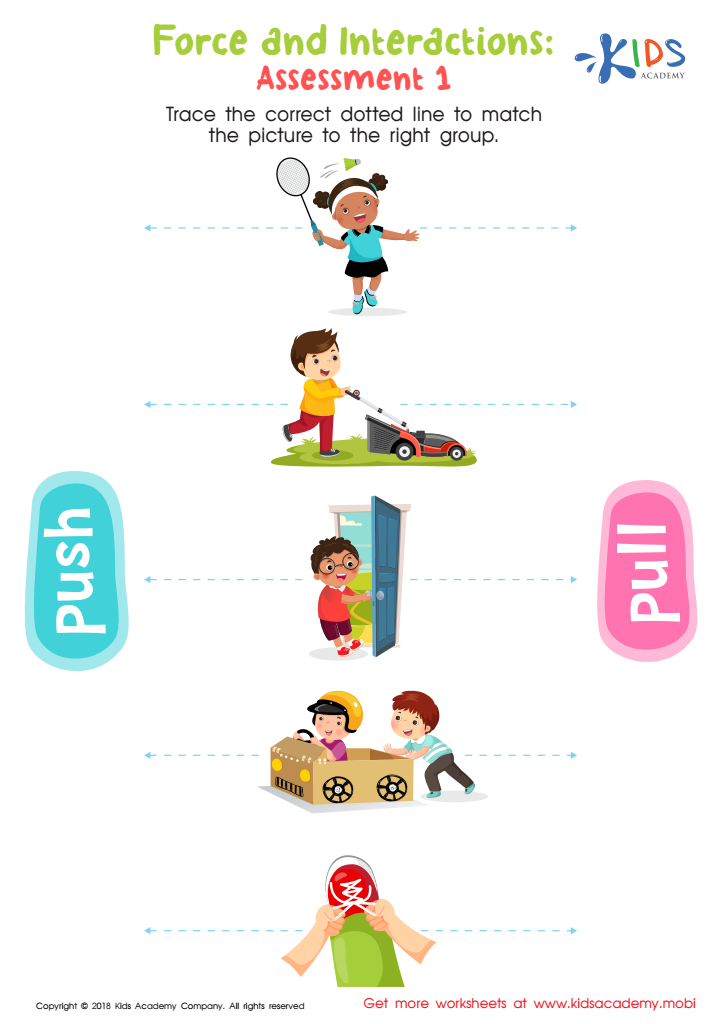

Force and Interactions: Assessment 2 Worksheet


Force and Interactions: Assessment 1 Worksheet
Science activities for ages 6-8 are crucial for fostering curiosity and a lifelong love of learning in children. At this age, children exhibit natural inquisitiveness about the world around them, and engaging them in science helps harness this curiosity. Active participation in science activities encourages hands-on exploration, which is essential for developing critical thinking and problem-solving skills. These activities provide opportunities for children to ask questions, make observations, and explore concepts through trial and error, promoting an inquiry-based learning approach.
Moreover, science activities can help cultivate skills such as communication, collaboration, and creativity. Working on group experiments fosters teamwork, while discussing findings enhances verbal expression. Introducing scientific concepts at a young age also lays the foundation for more advanced learning in the future, particularly in STEM (Science, Technology, Engineering, and Mathematics) fields, which are increasingly vital in our technology-driven world.
Ultimately, by investing time in science activities, educators and parents not only enrich a child’s knowledge base but also empower them to think independently and innovatively. This creates well-rounded learners who are prepared to navigate and contribute to an ever-evolving society. Science education is more than facts; it’s about nurturing a mindset of inquiry and discovery.

 Assign to My Students
Assign to My Students
















